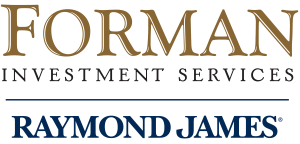Why the best retirement strategies start with purpose, not a birthday.
When most people think about retirement, they focus on age — 59½, 62, 65, or 70. But age alone doesn’t determine if you’re ready.
The real question is:
Can your money support the life you want — without work?
That’s what retirement truly is: a cash flow plan.
And understanding how to build one may matter more than hitting any milestone age.
Think “Income Streams,” Not Just Account Balances
Many people fixate on growing their investments — and while that’s important, the real challenge in retirement is turning savings into sustainable income.
Here’s what a retirement cash flow plan considers:
- How much you’ll need to spend monthly and annually
- Where that money will come from — and in what order
- How taxes and timing affect the net amount you keep
A strong plan aligns your lifestyle, savings, taxes, and timing — so income shows up when you need it, without triggering unnecessary tax or market risk.
The 5 Core Retirement Income Sources
- Social Security: May start as early as 62 or delay until 70
- Pensions: If available, often offer options (lump sum vs. lifetime income)
- Investment accounts: Taxable brokerage, IRAs, Roths, etc.
- Real estate or passive income: Rental properties, royalties, etc.
- Part-time or consulting income: Strategic work by choice, not necessity
Your retirement cash flow plan needs to coordinate these streams so they work together — not against each other.
The “When” Matters — But So Does the “How”
Here’s where planning gets strategic:
- What accounts should I draw from first?
- Should I delay Social Security or take it early?
- Would a Roth conversion reduce my lifetime taxes?
- How do I avoid sequence risk when withdrawing during a downturn?
These aren’t questions to answer with a rule of thumb.
They require custom modeling, tax awareness, and clarity about your long-term goals.
Real Questions We Help Clients Answer
- Can I retire earlier than I thought — or work less without running out?
- How do I replace a paycheck and feel secure doing it?
- What happens if I sell my business or exit my firm — how do I turn that into income?
- How do I coordinate with Social Security, Medicare, RMDs, and taxes?
If these questions feel familiar, you’re not alone.
And the right planning partner can help you turn complexity into confidence.
Retirement Is a Transition — Not a Transaction
At Forman Investment Services, we don’t believe in “set-it-and-forget-it” retirement plans.
We help clients design a life they actually want — with the cash flow to support it.
That means mapping income, timing distributions, weighing tradeoffs, and adjusting as life evolves.
Want to Stress-Test Your Retirement Plan?
Let’s walk through it with a financial advisor. We’ll show you how your current path looks — and what options may help improve flexibility, tax-efficiency, or peace of mind.
This content was created with the assistance of artificial intelligence (AI). While efforts have been made to ensure the quality and reliability of the content, it is important to note that AI-generated content may not always reflect the most current developments or nuanced human perspectives. Investing involves risk and you may incur a profit or loss regardless of strategy selected, including diversification and asset allocation. Past performance does not guarantee future results. Changes in tax laws or regulations may occur at any time and could substantially impact your situation. While we are familiar with the tax provisions of the issues presented herein, as Financial Advisors we are not qualified to render advice on tax or legal matters. Raymond James and its advisors do not offer tax or legal advice. You should discuss any tax or legal matters with the appropriate professional.
Any opinions are those of Forman Investment Services and not necessarily those of Raymond James. Investing involves risk and you may incur a profit or loss regardless of strategy selected. Raymond James and its advisors do not offer tax or legal advice. You should discuss any tax or legal matters with the appropriate professional. Prior to making an investment decision, please consult with your financial advisor about your individual situation.
Forman Investment Services


 Raymond James financial advisors may only conduct business with residents of the states and/or jurisdictions for which they are properly registered. Therefore, a response to a request for information may be delayed. Please note that not all of the investments and services mentioned are available in every state. Investors outside of the United States are subject to securities and tax regulations within their applicable jurisdictions that are not addressed on this site. Contact your local Raymond James office for information and availability.
Raymond James financial advisors may only conduct business with residents of the states and/or jurisdictions for which they are properly registered. Therefore, a response to a request for information may be delayed. Please note that not all of the investments and services mentioned are available in every state. Investors outside of the United States are subject to securities and tax regulations within their applicable jurisdictions that are not addressed on this site. Contact your local Raymond James office for information and availability.